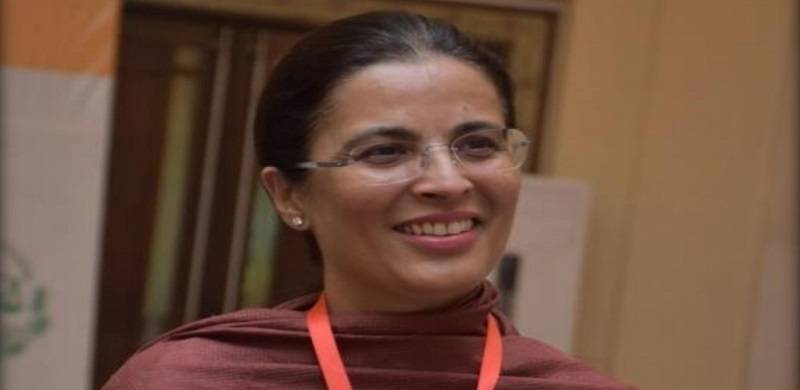
Justice Ayesha Malik is primed once again to become Pakistan's first woman judge of the Supreme Court. In light of the nomination to the apex court that has been made for the second time, we look at her storied legal career.
Throughout her tenure on the Lahore High Court (LHC), since 2012, she has delivered decisive judgements regarding gender equality, including the right to vote as well as against maintaining a women quota in government departments and medical colleges. She also hears a variety of constitutional petitions on tax, environmental and regulatory matters.
In January 2021, Justice Malik presided over the landmark ruling abolishing the controversial 'two-finger' virginity test for rape survivors.
In the case, titled Sadaf Aziz vs The Federation (2021), she held that 'virginity' could not be used as a determining factor in incidents of rape. Furthermore, the judgment stated that as it had no scientific or legal basis, the hymen test for virginity was illegal and unconstitutional.
“The damage caused by such comments and use of words describing the woman as habituated to sex or regularly involved in sexual intercourse can have far reaching effects on the victim socially as well as mentally and personally,” the order read.
She is a member of the International Association of Women Judges, Committee for Protection of Women Judges in Lahore, and the Board of Punjab Judicial Academy, where she developed a course on gender sensitization of court processes and trainings for judges on gender based violence.
"The biggest way I’ve had an impact is that I’ve become a voice. I'm there to call out the discrimination, call out stereotyping, and bring out the gender perspective. I'm the voice that nudges, reminds, and suggests ways to improve ourselves and make our system more inclusive," Malik said in an interview with the United Nations Office on Drugs and Crime (UNODC).
Justice Malik's other notable cases include Orient Power Company (Private) Limited vs Sui Northern Gas Pipelines Limited (2019), in which her ruling helped enhance the sanctity of commercial contract courts in the context of international commercial arbitration.
Holding a degree from Pakistan College of Law in Lahore and an LLM from Harvard Law School, she began her legal career at Fakhruddin G. Ebrahim & Co. in Karachi in 1997, where she worked until 2001. She is married with three children.
Throughout her tenure on the Lahore High Court (LHC), since 2012, she has delivered decisive judgements regarding gender equality, including the right to vote as well as against maintaining a women quota in government departments and medical colleges. She also hears a variety of constitutional petitions on tax, environmental and regulatory matters.
In January 2021, Justice Malik presided over the landmark ruling abolishing the controversial 'two-finger' virginity test for rape survivors.
In the case, titled Sadaf Aziz vs The Federation (2021), she held that 'virginity' could not be used as a determining factor in incidents of rape. Furthermore, the judgment stated that as it had no scientific or legal basis, the hymen test for virginity was illegal and unconstitutional.
“The damage caused by such comments and use of words describing the woman as habituated to sex or regularly involved in sexual intercourse can have far reaching effects on the victim socially as well as mentally and personally,” the order read.
She is a member of the International Association of Women Judges, Committee for Protection of Women Judges in Lahore, and the Board of Punjab Judicial Academy, where she developed a course on gender sensitization of court processes and trainings for judges on gender based violence.
"The biggest way I’ve had an impact is that I’ve become a voice. I'm there to call out the discrimination, call out stereotyping, and bring out the gender perspective. I'm the voice that nudges, reminds, and suggests ways to improve ourselves and make our system more inclusive," Malik said in an interview with the United Nations Office on Drugs and Crime (UNODC).
Justice Malik's other notable cases include Orient Power Company (Private) Limited vs Sui Northern Gas Pipelines Limited (2019), in which her ruling helped enhance the sanctity of commercial contract courts in the context of international commercial arbitration.
Holding a degree from Pakistan College of Law in Lahore and an LLM from Harvard Law School, she began her legal career at Fakhruddin G. Ebrahim & Co. in Karachi in 1997, where she worked until 2001. She is married with three children.

